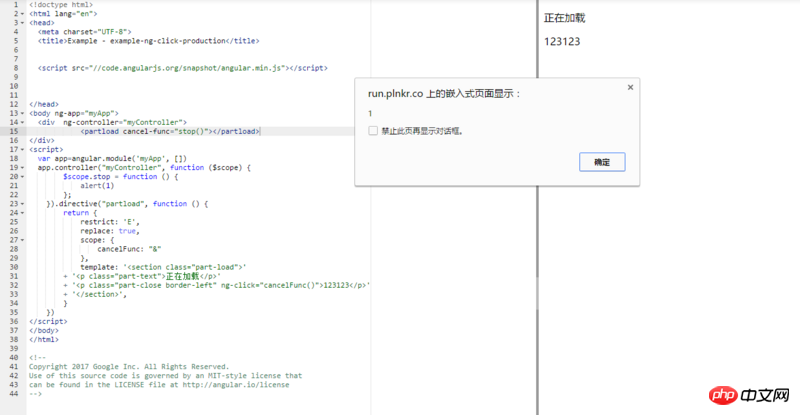return {
restrict: 'E',
replace: true,
scope: {
cancelFunc: '&'
},
template: '<section class="part-load">'
+ '<p class="part-text">正在加载</p>'
+ '<p class="part-close border-left" ng-click="cancelFunc"></p>'
+ '</section>',
link: function (scope, elem, attrs) {
}
}
}]);As above, a command partload is defined, expecting the attribute value cancelFunc to be passed in, binding the ng-click event, html structure:
<partload cancel-func="stop()"></partload> method is defined in the stop controller:
$scope.stop = function () {
alert(1)
}黄舟2017-05-15 17:14:06
Thanks for the invitation
The address of the online example: https://plnkr.co/edit/LBb4dN7...
The only difference from young-click="cancelFunc()"

迷茫2017-05-15 17:14:06
Thanks for the invitation
I also made an online example: https://embed.plnkr.co/SirYJd...
Try this
return {
restrict: 'E',
replace: true,
scope: {
cancelFunc: '&'
},
template: '<section class="part-load">'
+ '<p class="part-text">正在加载</p>'
+ '<p class="part-close border-left" ng-click="_cancelFunc()"></p>'
+ '</section>',
link: function (scope, elem, attrs) {
scope._cancelFunc = function(){
// 这里可以写一些指令内部逻辑
scope.cancelFunc({id: 1}); // { id : 1 } 传参
}
}
}